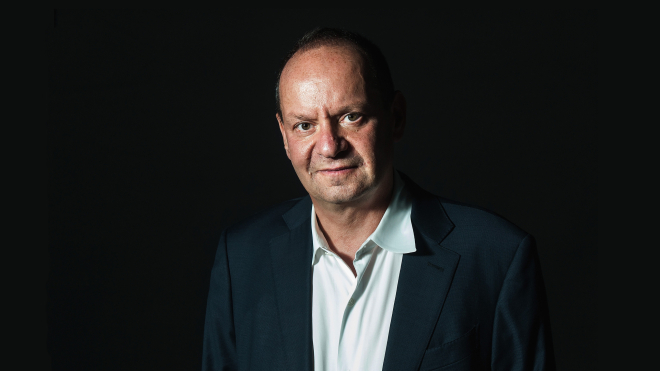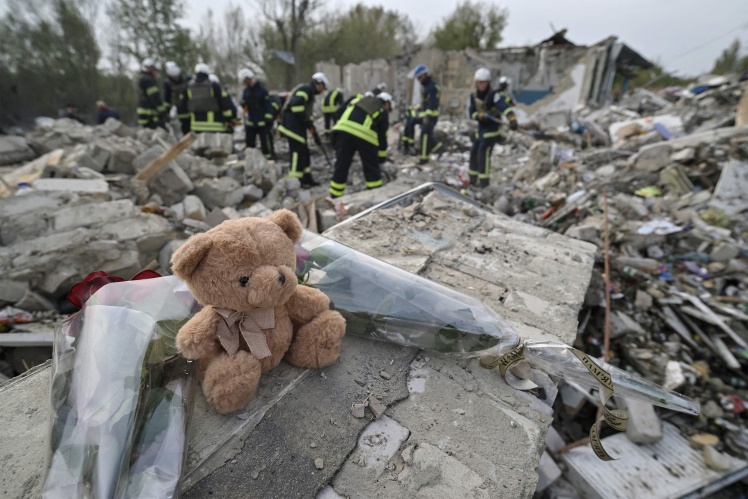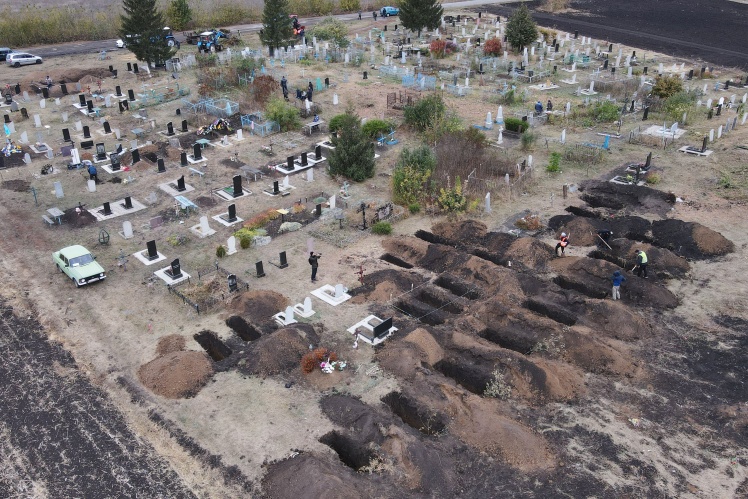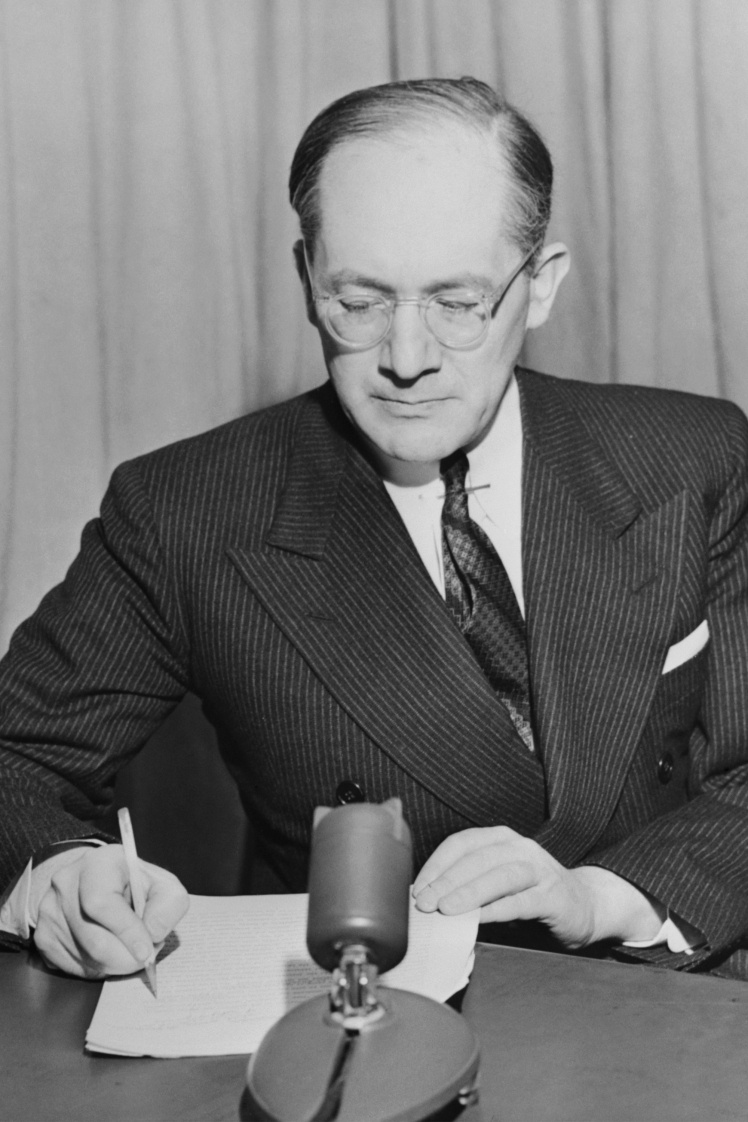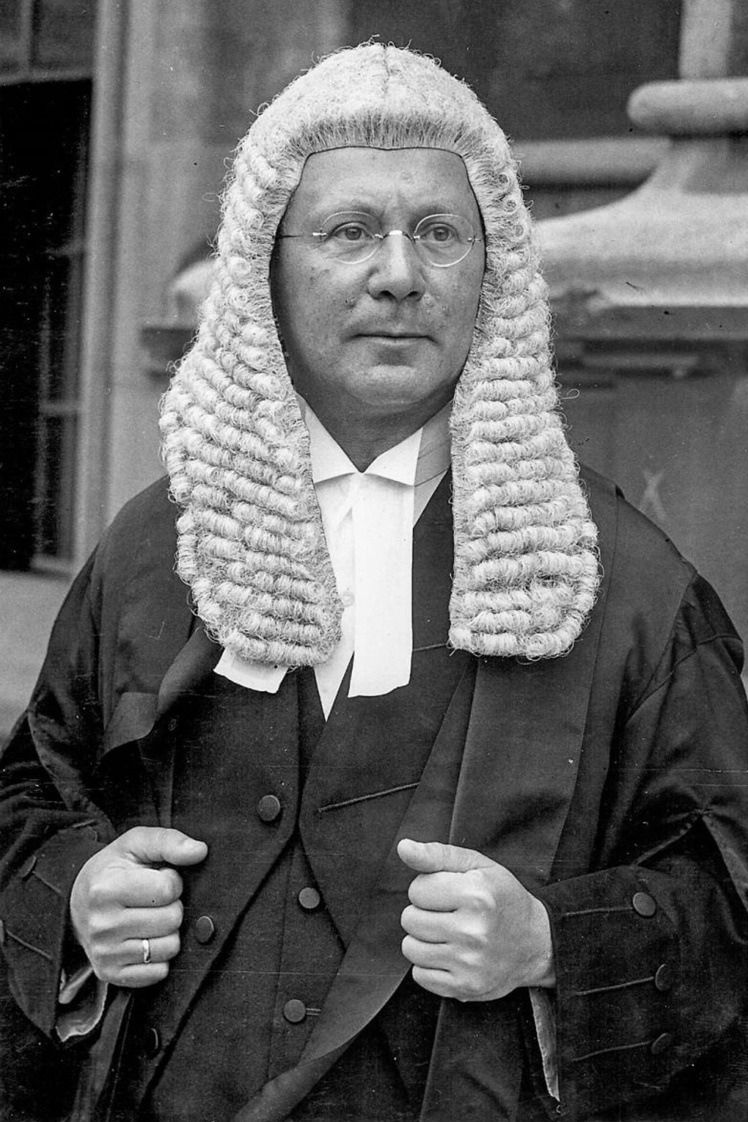You help the Ukrainian authorities to look for options and configuration of the International Tribunal for the crime of aggression. According to my information, you are even a co-author of the projects of certain documents that can form the basis of this tribunal. Which option of the tribunal seems to you the most suitable for Ukraine, and which is the most likely?
There are two options: a full-fledged international tribunal and the one that the British, Americans and French call a hybrid one, which is a kind of mixture of Ukrainian and international law. Currently, the discussion around these two configurations has reached an impasse, but I believe that a solution will be found, although it is not yet known which one.
I want it to be a full-fledged international tribunal, because that is a guaranteed way to get to the top [of Russia], including the issue of [Putinʼs] immunity. Such a tribunal is supported by Ukraine, and the Baltic countries also speak out for it. And the British, French and Americans are nervous because they fear that this will create a precedent that will later be used against them .
Are there other options that could be a compromise?
War crimes, crimes against humanity — the International Criminal Court and Ukrainian courts can deal with them. The gap is precisely in the investigation of the crime of aggression. Since 1945 there has been no tribunal for the crime of aggression. This is not a problem of the law, it is a question of political will. Is there a political will to support Ukraine, and how strong is it? I think quite strong.
Do you believe that the United States and Great Britain can be persuaded to support the International Tribunal?
I hope so. I keep in touch with them, many people talk to them. And I think that it partly depends on the events in Ukraine, and also on what is happening in Russia, what is happening with Putin. You just have to keep talking and trying to convince.
When I wrote the article on February 28, 2022, I was convinced that there was no chance of creating a tribunal. But 18 months later, everything looks different — there is political support for such a tribunal. The Hague has a Center for the Investigation of the Crime of Aggression [International Center for the Prosecution of the Crime of Aggression against Ukraine, which we wrote about earlier ]. This shows a strong political will to do something.
Representatives of six countries are currently working in this center . Can it later grow into something more and become, for example, part of the tribunal? Or, perhaps, the option of a multilateral treaty between countries on the establishment of a tribunal is still under consideration. Are there any other options?
I think ICPA is a really important start. It is supported by the European Union, which is 27 countries. The tribunal can be established either by agreement or by resolution of the UN General Assembly or the Security Council. The latter is not an option because Russia and probably China will veto it. So it is either a resolution of the General Assembly or a treaty between countries that agree to create a tribunal.
You wrote a book called "Lawless World". Among other things, it talks about how US President George Bush and British Prime Minister Tony Blair planned the invasion of Iraq. You called this operation a violation of international law. Now the USA and Great Britain are afraid that the International Tribunal, which will overcome Putinʼs immunity, may become a precedent. If we compare Russiaʼs war in Ukraine and the war in Iraq, is it aggression in both cases? Do we need to pay attention to intent and purpose in such cases?
Yes, both cases are clearly illegal, but they are different because the underlying reasons are different. I donʼt think that the UK and the US wanted to occupy Iraq, take over or destroy it as a country. So the motivation was very different. But, in my opinion, this was a clear violation of the UN Charter. It was illegal and some people called it a crime of aggression.
Another very important difference, which I think will play a role later, is that the General Assembly did not pass a resolution condemning the war in Iraq. In the case of Ukraine, there is such a resolution. In it, Russiaʼs actions were condemned as an act of aggression, as actions that violate the UN Charter.
But accusations of hypocrisy and double standards against the West are sometimes, in my opinion, well-founded. I worked with former British Prime Minister Gordon Brown to establish the Special Crimes of Aggression Tribunal. And he was number two in Tony Blairʼs government, which supported the illegal war in Iraq. Iʼm not going to stop working with him because of this, but itʼs a sensitive issue. I think he regrets the war in Iraq. He didnʼt tell me that, but I donʼt think heʼs proud of it.
Then-Prime Minister Gordon Brown, left, leaves the presidential palace in Baghdad after meeting with Vice President Al-Hashimi on December 17, 2008 in Baghdad, Iraq.
Getty Images / «Babel'»
If the US and other countries fear this precedent, are there any arguments to convince them?
We can tell them that the General Assembly passed a resolution on Ukraine, but not on Iraq. This is significant. Without such a resolution, a tribunal cannot be created.
Letʼs talk about another international crime — genocide. It is very difficult to prove it. There are classic examples — the Holodomor or the Holocaust during the Second World War, the genocide in Rwanda. Is it possible to prove that Russia is currently committing genocide in Ukraine?
We can talk about genocidal rhetoric or genocidal intent. There is a gap between the legal definition of genocide, which has a very high threshold of proof, and the political characterization of something as genocide, which is that terrible things are being done to a people, in this case Ukrainians. At one point, US President [Joe] Biden said that what is happening in Ukraine looks like genocide to him. And then he took a step back and said it was a matter for lawyers. I donʼt want to criticize President Biden because I support Ukraine, but I donʼt think he should have talked about genocide.
I litigate genocide cases. It is really hard to prove. And based on the materials regarding Ukraine that are available to me, we can definitely talk about war crimes, definitely about crimes against humanity and definitely about the crime of aggression. Regarding genocide, I think that the courts will not decide that there is genocide at this time. But I donʼt know all the facts about Buchi, Irpen, Mariupol, and other cities. Therefore, when asked, I say that based on the evidence I have, it will be difficult to prove genocide, I need more information.
And if we talk, for example, about the last rocket attack on the village of Groza, where almost a third of the village was killed with one rocket?
This is a war crime, a crime against humanity, but not genocide. It is very difficult to fit this into what international courts consider to be genocide. But in reality there is no difference between genocide and crimes against humanity! Crimes against humanity are as terrible as genocide. It so happened that ordinary people for some reason believe that genocide is the number one crime, which is not true. If you look at the sentences, the punishments for crimes against humanity are no less than the punishments for genocide. Genocide simply describes a different intent.
On October 5, 2023, the Russians hit a cafe in the village of Groza with a rocket. 53 people died. Cemetery in Grozny
Getty Images / «Babel'»
On the other hand, if there is evidence that the Russians entered Bucha and killed the head of the village precisely because he headed the community and was Ukrainian, then it could be qualified as genocide.
As far as I know, there was such a case in the Kyiv region, near Makarov or in Makarov, it seems that the entire family of the head of the village was killed...
In the International Criminal Tribunal for Yugoslavia, there are cases when such actions were recognized as genocide.
And is this enough to prove genocide, or is it just part of the big picture?
This is part of the picture. Because the killing of community leaders was characterized by the Yugoslav Tribunal as a possible manifestation of genocide.
In your book "East-West Street. Return to Lviv" clearly shows the competition between Rafal Lemkin and Hersh Lauterpacht, as well as between their ideas of the crime of genocide and crimes against humanity, the protection of a specific person and the protection of a group. Is there such a competition between these two crimes now?
Yes, she remains. The competition has been going on for 75 years. In Ukraine, everyone wants to recognize the genocide itself and not qualify Russiaʼs actions as crimes against humanity, which is wrong.
Rafal Lemkin. Hersh Lauterpacht.
Getty Images / «Babel'»
And how to put an end to this? Need to explain the difference to people?
There is a way to stop this — to combine crimes against humanity and genocide into one crime. But this will not happen.
Because punishment for crimes against humanity is the protection of a specific person, and for genocide it is the protection of a group?
Exactly. But these two crimes exist side by side and compete. I understood the nature of this competition already when I wrote the book. We are talking about the idea of the relationship between the individual and the group, that is, about the essence of human identity. Each of us is both an individual and a member of various groups. And each individual asks himself the question, what is the connection between these two identities.
In history, there are examples of sentences for incitement to genocide in various international tribunals, but is it possible to prosecute for propaganda? Specifically, Russian TV presenters, heads of large state TV channels and those who control them in Putinʼs administration?
The ICC can prosecute for incitement to war and other international crimes. If we talk about Ukraine, we are talking about genocidal rhetoric from the Russian side, but perhaps its scale is not yet sufficient to start the process at the international level.
You propose to include ecocide in the list of international crimes and, as far as I understand, in particular in the Rome Statute. When can this happen? And is the undermining of the Kakhovskaya HPP an ecocide?
The idea of adding ecocide to the Statute of the International Criminal Court as a fifth international crime has been launched. It is supported by several countries. The destruction of the hydroelectric power station, if the evidence proves that it was done by the Russians, could be ecocide.
